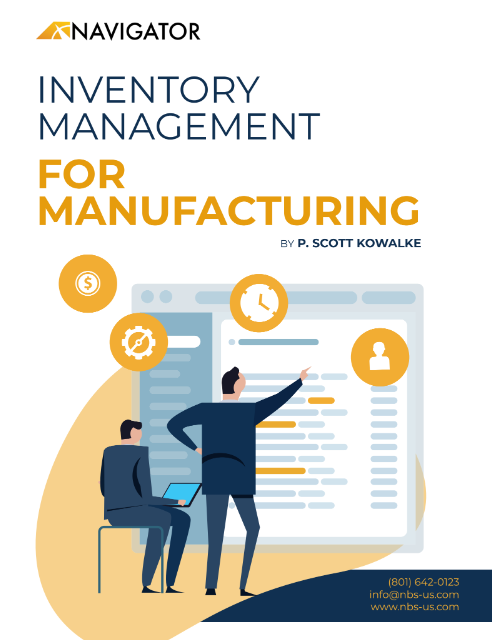
Get the 'Inventory Management for Manufacturing' Guide
Achieve efficient inventory management & enhanced competitiveness.
A guide to the tools and processes of modern manufacturing operations.
Modern manufacturers must be nimble & efficient. Learn how modern ERP enables next-gen inventory management.
Manufacturing is in flux. Technological advances, evolving consumer expectations, and increased competition from overseas manufacturing operations have forced a digital transformation and increased efficiency on manufacturers. Meeting production deadlines and hitting quality standards is not enough. Manufacturers must also be nimble and efficient.
To achieve these goals, manufacturing companies need to have a comprehensive view of their business operations and automate processes throughout the organization, including financials, production management, inventory management, and supply chain management.
One of the most effective ways to achieve this is by implementing a cloud-based Enterprise Resource Planning (ERP) system that has been built for growth-focused manufacturing companies looking to achieve this nimbleness and efficiency with improved inventory management.
Key takeaways:
Digital Transformation: Manufacturers need to leverage technologies like advanced analytics, AI, and IoT to create a data-driven "Intelligent Enterprise." This allows for optimized operations, from demand forecasting to inventory management.
Lean principles: The core principles of lean manufacturing, developed by Toyota, are still highly relevant. They emphasize minimizing waste and maximizing efficiency throughout the production process.
Three focus areas: Inventory management can be broken down into three areas: purchasing raw materials, storing inventory (both raw materials and finished goods), and profiting from inventory.
Benefits of modern inventory management:
- Reduced costs: Predictive analytics helps optimize inventory levels, minimizing carrying costs and stockout risks.
- Improved efficiency: Automation and data-driven decision-making streamline processes, reducing errors and wasted time.
- Increased agility: The ability to anticipate demand fluctuations allows manufacturers to be more responsive to changing market conditions.
- Enhanced visibility: Real-time data provides better visibility into inventory levels and potential disruptions.
This guide emphasizes that by embracing digital transformation and intelligent inventory management practices, manufacturers can gain a significant competitive advantage.
Learn more about SAP Cloud ERP for manufacturers here.
